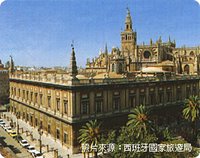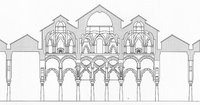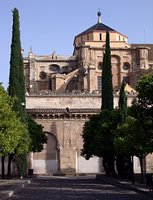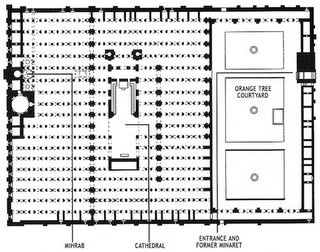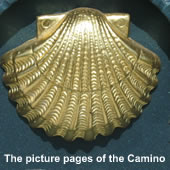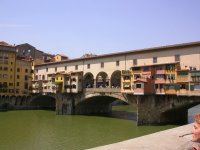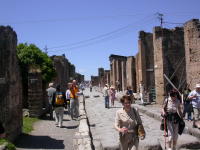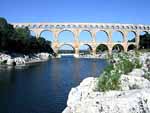 In 1914 the historical buildings and monuments legislation was set up and naturally included the Pont du Gard, and in 1986 the UNESCO classified it as world heritage.
In 1914 the historical buildings and monuments legislation was set up and naturally included the Pont du Gard, and in 1986 the UNESCO classified it as world heritage.
How long did it take to build the aqueduct and how long was it used for?
It took around 10 to 15 years to construct the aqueduct including five years in which the bridge was built. The aqueduct transported water from Uzès to Nîmes for nearly five centuries, from 50 A.D to the beginning of the sixth century.
How long is the aqueduct ?
Although some 20 kilometres separate the aqueduct’s starting point and finishing point, there are nearly 50 kilometres of winding course presenting diverse obstacles (such as valleys, ditches and mountains) which were, one by one, filled or dug out. Nothing could stop the Romans’ genius, not even the deep Gardon valley which was crossed thanks to the aqueduct’s masterpiece, the Pont du Gard.
Where does the aqueduct start and end ?
Water used to leave the Eure source in Uzès, at 71.25 m altitude, flowing into the Castellum Divisarium (water tower), rue de la Lampèze at 59.95 m altitude, equivalent to a general lowering of 12.29 m and an average slope of 24.8 cm per kilometre.
How fast did water flow through the aqueduct ?
In the first years of running, water flowed through the aqueduct at a rate of 400 litres / second; and at the end the flow was only 100 litres / second. Between Uzès and Nîmes the average transit time at full running period was 24 to 30 hours.
…And the canal ?
Water ran along the canal at the final stage of the aqueduct measuring 1.2 m wide and 1.8 m high.
What is the aqueduct made of ?
The material used for building the Pont du Gard came from two quarries found on the left bank of the Pont du Gard. The rock is a fairly supple chalk, easy to work, not easily damaged by frost and which hardens over time. The fine dust created during laying would mix with the water which was run through the surfaces and bound the stones one on top of the other. The total mass of the Pont du Gard is about 50400 tonnes!
The Pont du Gard by numbers
Total height :
48.77 m above the Gardon’s water base.
Lower level : 6 arches
-142 m long
-6 m wide
-22 m high.
Middle level : 11 arches
-242 m long
-4 m wide
-20 m high
Higher level : 35 arches
-272 m long
-3 m wide
-7 m high.
And in dates:
- 1st century : Construction of the Pont du Gard.
- 1295 : Introduction of the toll bridge.
- 1448 : Earthquake in the Nîmes area.
- 1629 (16 June) : Richelieu stays at St. Privat castle and concludes the Alais (Alès after 1926)peace Agreement with the protestants.
- 1699-1704 : The first bridge restoration by the Languedoc states.
- 1743-1749 : Construction of the road-bridge by the engineer Pitot.
- 1832 : building of the Remoulins suspension bridge by the engineer Seguin. (the arch support, two columns and two edifices remain)
- 1843-1845 : first genuine restoration by Prosper Mérimée.
- 1855-1858 : Second part and completion of restoration project.







